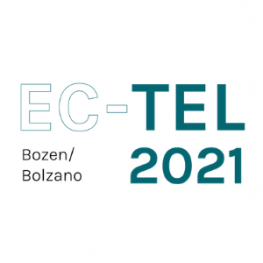Speakers
Inge Molenaar
Radboud University, The NetherlandsStart
22/09/2021 - 09:30
End
22/09/2021 - 10:30
Address
Plenary Room @ EC-TEL Gather Town View mapKeynote: Towards Hybrid Human-AI Learning Technologies
Chair:  Roland Klemke
Roland Klemke
There are multiple scenarios in which artificial intelligence (AI) could improve teaching and learning. In a dialogue between researchers, entrepreneurs, policy-makers and education professionals, we should aim to make the most promising hybrid human-AI solutions available to the educational sector. In order to develop our thinking about the potential of learning analytics and AI to enrich education, I proposes the 6 levels of AI in education model in this talk. This model is inspired by similar models that are used to discuss the role of AI in the car industry and the medical field. In this model, the transition of control between teacher and technology is articulated in different levels. This aligns with the hybrid intelligence perspective that emphasizes the importance of human-AI interaction (Kamar, 2016). The models helps us to further understand and develop the combined strength of human and artificial intelligence in combination. I expect that this augmentation view on the role of AI in education will increasingly influence our thinking about learning technologies and the role they play in education.
In the talk I would like to discuss the current state of the art with respect to AI in education with the ECTEL community and it support the debate about the future AI and education. Articulating our current position as a field may help to further frame the interdisciplinary dialogue between researchers, entrepreneurs, policy-makers and education professionals and develop common ground among all these dialogue partners. This is critical to envision future developments and understand the role of hybrid human-AI learning technologies and envision accompanying roles for AI, teachers and learners.
About Inge Molenaar
Inge Molenaar is associated professor Educational Sciences at the Behavioural Science Institute at Radboud University in the Netherlands. She has over 20 years of experience in the field of technology enhanced learning taking multiple roles from entrepreneur to academic. Her research in the Adaptive Learning Lab focusses on technology empowered innovation to optimize students’ learning. The application of data, learning analytics and Artificial Intelligence to understand how learning unfolds over time is central in her work. Artificial Intelligence offers a powerful way to make new steps towards measuring, understanding and designing innovative learning scenarios. Dr Molenaar envisions Hybrid Human-Systems that augment human intelligence with artificial intelligence to empower learners and teachers in their quest to make education more efficient, effective and responsive. In this endeavor collaboration between governments, schools, research and industry is essential to develop the next generation educational systems. Dr Molenaar has just received an ERC Starting Grant to develop the first Hybrid Human-AI Regulation system to train young learners’ Self-regulated learning skills with the help of AI and she also recently became a Jacobs Foundation Fellow. Dr Molenaar holds Master’s degrees in Cognitive Psychology and International Business studies (Maastricht University) and a PhD in Educational Sciences (University of Amsterdam).

